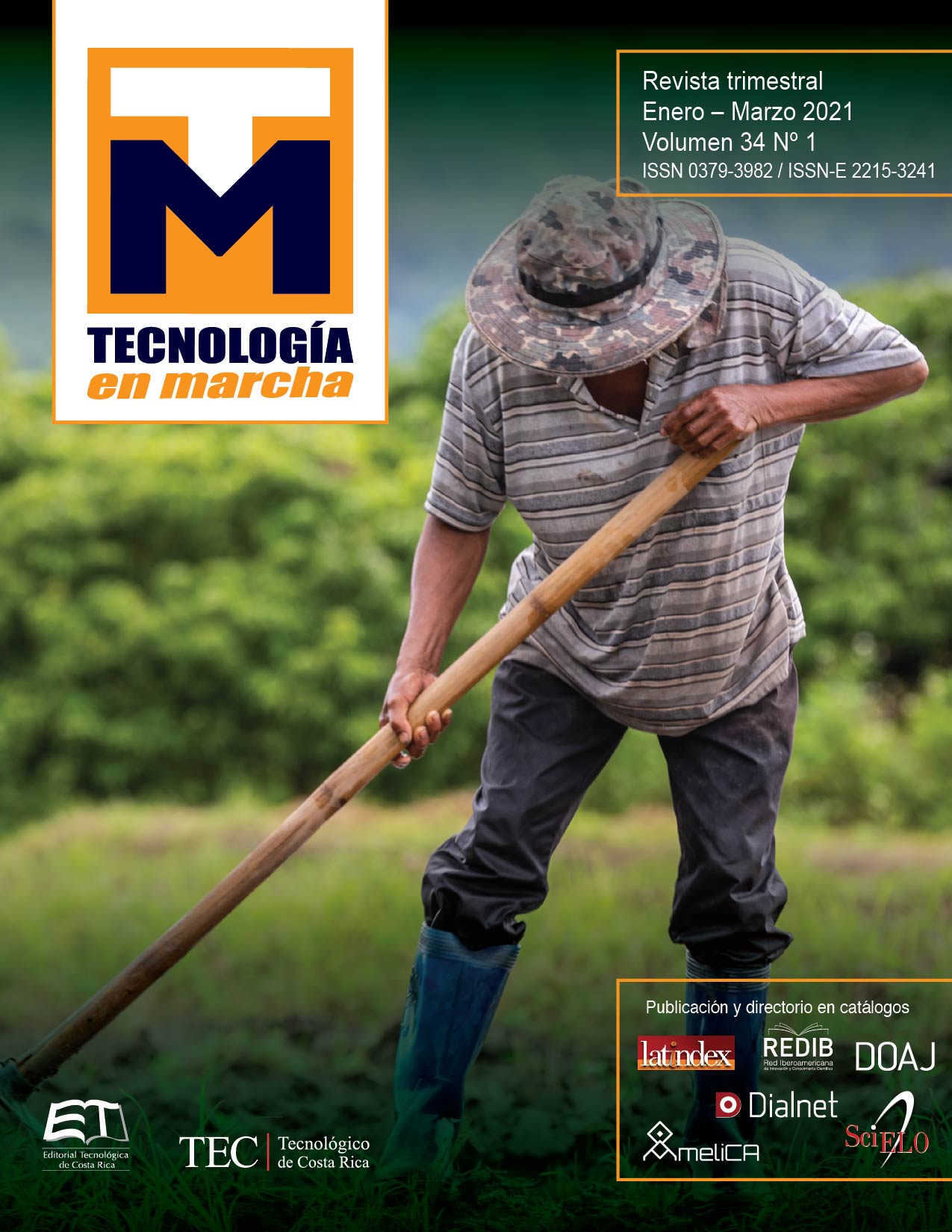Impact of the actions implemented in the integral solid waste management, in the Costa Rican Institute of Technology
Main Article Content
Abstract
One of the biggest challenges that Costa Rica is facing due to the climate change is to carry out a proper management of residues, because at the present time they represent one of the most important sources of CO2e emissions in the national territory. The Costa Rican Institute of Technology, from the Unidad Institucional de Gestión Ambiental y Seguridad Laboral, joins the efforts of the country by formulating different initiatives that seek to reduce the amount of solid waste that is disposed in the landfill, and guiding actions not only to manage them properly, but to prevent its continuing production. In a study of characterization of the ordinary solid waste from the central campus, it was determined that in 2016 the University sent 124 533 kg to the landfill, 19% of which corresponded to recycling materials that could have been managed by the Institutional Collection Center. Thus, via the implementation of clear and concise strategies, in 2018 the University reduced 57% of plastic waste and 50% of polylaminated waste, both sent before to the landfill. Besides, for the year 2019, the per capita waste production of the student residences was reduced by 47%, that means 22 856 kg of CO2e less in that year, an action consistent with the Carbon-Neutrality Management System of the University.
Article Details

This work is licensed under a Creative Commons Attribution-NonCommercial-NoDerivatives 4.0 International License.
Los autores conservan los derechos de autor y ceden a la revista el derecho de la primera publicación y pueda editarlo, reproducirlo, distribuirlo, exhibirlo y comunicarlo en el país y en el extranjero mediante medios impresos y electrónicos. Asimismo, asumen el compromiso sobre cualquier litigio o reclamación relacionada con derechos de propiedad intelectual, exonerando de responsabilidad a la Editorial Tecnológica de Costa Rica. Además, se establece que los autores pueden realizar otros acuerdos contractuales independientes y adicionales para la distribución no exclusiva de la versión del artículo publicado en esta revista (p. ej., incluirlo en un repositorio institucional o publicarlo en un libro) siempre que indiquen claramente que el trabajo se publicó por primera vez en esta revista.
References
Asamblea Legislativa de la República de Costa Rica, Ley para la Gestión Integral de Residuos. Costa Rica, 2010, pp. 1–8.
M. Castillo and U. Hardter, Integrated Solid Waste Management in Island Regions. Quito, Ecuador: WWF, 2014.
H. Tian, J. Gao, J. Hao, L. Lu, C. Zhu, and P. Qiu, “Atmospheric pollution problems and control proposals associated with solid waste management in China : A review,” J. Hazard. Mater., vol. 252–253, pp. 142–154, 2013.
B. Gworek, W. Dmuchowski, E. Koda, M. Marecka, A. Sieczka, and P. Osi, “Impact of the municipal solid waste Łubna Landfill on environmental pollution by heavy metals,” Water, vol. 8, no. 470, 2016.
Presidencia de la República y Ministerio de Salud, Reglamento sobre el Manejo de Residuos Sólidos Ordinarios. 2010.
F. Bermúdez Koumineva, “Coincineración: una posible y controversial alternativa al manejo de los residuos. Caminar de espaldas hacia un laberintoˮ, Ambientico, vol. 261, no. 4, pp. 24–30, 2017.
A. R. Chacón Araya, G. Jiménez Valverde, J. Montenegro Ballestero, J. Sasa Marín y K. Blanco Salas, “Inventario nacional de gases de efecto invernadero y absorción de carbonoˮ, Ministerio de Ambiente y Energía, Instituto Metereológico Nacional, Costa Rica, 2012.
H. Asefi and S. Lim, “A novel multi-dimensional modeling approach to integrated municipal solid waste management,” J. Clean. Prod., vol. 166, pp. 1131–114, 2017.
A. Lagerkvist and L. Dahlén, “Solid waste generation and characterization,” in Recovery of Materials and Energy from Urban Wastes: A Volume in the Encyclopedia of Sustainability Science and Technology, 2nd ed., N. J. Themelis and A. C. (Thanos) Bourtsalas, Eds. New York, NY: Springer New York, 2019, pp. 7–20.
M. Essonanawe et al., “Municipal solid waste composition: Sampling methodology , statistical analyses , and case study evaluation,” Waste Manag., 2014.
S. Kaza, L. Yao, P. Bhada-Tata, and F. Van Woerden, What a waste 2.0: A global snapshot of solid waste management to 2050. Washington, DC: World Bank Publications, 2018.
Ministerio de Salud, Plan Nacional para la Gestión Integral de Residuos 2016-2021, Costa Rica, 2016.
Ministerio de Salud, Estrategia Nacional de Separación, Recuperación y Valorización de Residuos 2016-2021, Costa Rica, 2016.
R. Mejías Elizondo, “Sistema de gestión para la certificación carbono neutralidad en el Instituto Tecnológico de Costa Ricaˮ, Instituto Tecnológico de Costa Rica, 2018.
S. Calderon, “Evaluación de la gestión de residuos sólidos ordinarios en la Sede Central del Tecnológico de Costa Ricaˮ, 2017.
“Campus Tecnológico Central Cartagoˮ, en Tecnológico de Costa Rica, 2019. [Online]. Available: https://www.tec.ac.cr/sedes/sede-central-cartago. [Accessed: 29-Sep-2019].
Presidencia de la República y Ministerio de Salud, “Metodología para estudios de generación y composición de residuos sólidos ordinariosˮ. Costa Rica, 2013.
E. Coyogo, K. Gonzales, E. Heredia y R. Sánchez, “Recomendaciones para la caracterización y cuantificación de residuos sólidos universitarios. Caso de estudio: Universidad Politécnica Salesiana, campus sur, Quitoˮ, Rev. Ciencias la Vida, vol. 23, no. 1, pp. 60–71, 2016.
M. Ruiz Morales, “Caracterización de residuos sólidos en la Universidad Iberoamericana, Ciudad de México”, Int. Contam. Ambie, vol. 28, no. 1, pp. 93–97, 2012.

